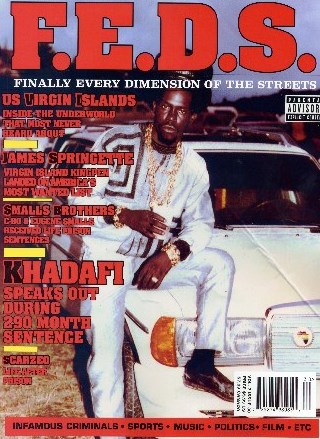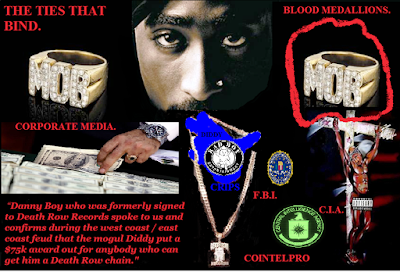Ahead of pivotal European elections, rightist websites grow in influence.
The following post by Michael Birnbaum on March 6, for the Washington Post is a potent example, of the increasingly nationalist, populist direction that the Caucasian masses in Europe are willingly marching in. In step with their North American counterparts. The political elite on Sint Maarten will not take heed, the present course of developments in Europe and America will, force the politically progressive in the Caribbean including belatedly Sint Maarten, to unite out of a shared sense of mutual self-preservation. To you Sint Maarteners who frequent this platform, read with an understanding and learn the salient potent lessons herein.
AMSTERDAM — On the brand-new political news website, the headlines could have been ripped from a speech by President Trump: Immigrants commit more crime, Syrian refugees are raping girls, and Muslim education is taking over the school system.
But the two-month-old Gatestone Europe website is based in the Netherlands; the contributors are Dutch. And their aim, their editor says, is to swing the debate ahead of European elections this year to deliver a tide of anti- immigrant leaders to office in the Netherlands, France, Germany and elsewhere.
Websites that focus on the perils of open borders, immigration and international alliances are expanding in scope and ambition in Europe, seeing a once-in-a-generation opportunity to harness the energy from Trump’s win to drive deep into a continent where traditional political parties are struggling. Some of the websites are registered in Russia. Others, like Gatestone Europe, are being supported by Americans with ties to Trump.
In the Netherlands, some online activists are backing a handful of anti-Muslim candidates, including the fiery Geert Wilders, who is running in a dead heat against the ruling party ahead of March 15 elections. In France, news blogs are spreading innuendo about the rivals of the anti-immigrant Marine Le Pen, who is the most popular presidential candidate in the lead-up to the election in April and May. And in Germany, some of the outlets have spread false stories about refugees raping people that were repeated by the Russian foreign minister. Fed by public anger about refugees, the Muslim-bashing Alternative for Germany party is poised to seize seats in Germany’s Parliament in September.
“There’s quite a lot of news, quite shocking, often with rape or violence and immigrants,” said Timon Dias, 29, who started Gatestone Europe last month after several years of writing for a different anti-establishment website in the Netherlands. “We want people to learn what’s happening in Europe and vote accordingly, especially ahead of elections this year.”
Although many of the sites are small — the Amsterdam-based Gatestone Europe has only four writers, and no office — they do not need to be well established to score big on Facebook or Twitter. A spicy individual post can go viral with little regard for the history of the outlet.
“It’s a crowbar in the system,” Dias said. “The main line is highly vigilant, highly critical about what the effects are of having a significant Muslim minority in the inner cities.”
The project is funded by the New York-based Gatestone Institute, which is chaired by former U.N. ambassador John Bolton, who was a finalist in Trump’s search for a new national security adviser. Contacted for comment, the Gatestone Institute made available one of its board members, retired Harvard Law professor Alan Dershowitz, who said that the organization is nonpartisan and that its aim is to “move the debate to the center.” Bolton did not reply to a request for comment.
As with other similar sites, many of Gatestone’s posts are based on true events, spun aggressively to feed the narrative that mainstream, pro-European Union politicians are selling out their countries to immigrants. The site does not support any one candidate in the Dutch elections, but the anti-E.U. leader of the small Forum for Democracy party, Thierry Baudet, is a contributor.
“We report the news to our readers in a directed way,” Dias said.
Although Wilders is likely to face trouble forming a coalition and Le Pen is forecast to lose the second round of France’s presidential election, both candidates have had success in shifting debate in their nations onto
more anti-immigrant, Euroskeptic ground. Far-right websites are often their megaphone.
In the Netherlands, similar news outlets have already made successful forays into Dutch political life.
A referendum last year on whether the Dutch government should ratify a trade deal with Ukraine was triggered by a far-right news site, GeenStijl.
The eventual rejection of the trade deal turned into an embarrassing defeat for the Dutch government, which was forced to backpedal on its commitment to Ukraine. Opponents of the trade deal, including GeenStijl, cited an opposition to E.U. expansion and a desire not to antagonize the Kremlin as reasons to vote it down.
Pro-Ukraine-deal campaigners say they suspect that the Kremlin put a finger on the scale by supporting activists and pro-Russian trolls online, although no link has been proved. The activists, including GeenStijl, deny any connection.
But even absent ties to Russia, the news sites demonstrated a powerful ability to disrupt the pro-E.U. agenda of the Dutch mainstream, creating a political headache for Dutch leaders and feeding Western disunity that coincides with Kremlin efforts.
“The Ukraine referendum has shown what kind of mayhem they can cause,” said Cas Mudde, a Dutch scholar of far-right movements at the University of Georgia. “What impressed a lot of people was their ability to mobilize people who were commenting on websites to go out and actually vote for a cause. People weren’t expecting that.”
Now GeenStijl’s political arm, GeenPeil — Dutch for “no poll” — has spun off into a political party and is contesting the parliamentary election on the promise to hold Dutch leaders accountable.
“Until my generation, everybody had a better life than their parents. That has stopped,” said Jan Dijkgraaf, 54, a former journalist who is now the leader of GeenPeil.
He said he did not consider himself a far-right politician, but he seized on immigration as a major focus for Dutch voters.
Dijkgraaf said he could understand if a mother of three needed temporary refuge from war. “But when there are boys of 25 with these kind of muscles, you have to think, are they really victims of a war, or do they have plans to get rich, or to do something like in Brussels or in Paris?”
The Ukraine referendum sparked a number of political parties, most of which have struggled to break through Wilders’s lock on anti-immigrant discourse in the Netherlands.
Wilders was using Twitter to spark outrage and publicity long before Trump turned to electoral politics. A tweet last month of a leading political opponent, Alexander Pechtold, Photoshopped into a pro-sharia demonstration in London dominated political coverage for days. Wilders later acknowledged that the photo was fake but said Pechtold had recently been to a similar demonstration.
“They don’t care about what is really true, what is a little true, or what is fake,” Pechtold said. “And that’s of course what we have seen in the United States.”
In the far-right Web universe, the faked picture caused no uproar.
“It’s a way of speaking to people,” said Bert Brussen, editor of ThePostOnline, another far-right website where headlines on recent articles have included “Iraqis on Trial for Gang Rape in Vienna” and “Massacre by Islamic terror was again prevented in Germany.”
“A lot of what Wilders says, it’s Internet language,” Brussen said. “The Internet makes them stronger, and they make the Internet stronger.”
In other countries with elections this year, far-right sites are also thriving, attracting the attention of some of the American outlets that helped propel Trump to victory. Last year, Breitbart News — whose former head, Stephen K. Bannon, is now Trump’s chief strategist — said that it would take the plunge into the French and German markets, although there is so far little sign that it is readying to open.
But anti-establishment activists in those countries may need little help.
In France, where far-right candidate Le Pen wants to take a hard line against Muslim immigration, hold a referendum on E.U. membership and embrace relations with the Kremlin, far-right news sites have taken aim at whichever candidate appears most likely to challenge her in the final round of the presidential election, due to be held May 7. (Le Pen is expected to win the first round.)
For months, that was center-right candidate François Fillon. More recently, a surge from the centrist Emmanuel Macron has drawn a volley of darts from rumor-mongering websites, some of them branches of Russian state media. Macron recently took on the rumors, joking that his apparent ability to have gay affairs puzzled his wife, who is usually by his side.
And in Germany and Austria, experts say roughly 30 German-language “alternative websites” are currently operating. Many have existed for years, but they have transformed into machines to undermine traditional politicians, especially since the start of Europe’s refugee crisis.
The majority of them, experts say, tend to have opaque ownership structures, making it difficult to ascertain who is behind them. They are almost universally pro-Russian in tone, and some of the German-language sites are operated from Russian servers, though direct links to the Russian government are hard to find.
“They publish stories with a true core, building their own atmosphere around this core, what we call ‘hybrid fake,’ ” said Andre Wolf, a spokesman for Mimikama, an Austria-based fact-checking website.
Many stories seem aimed at undermining German Chancellor Angela Merkel’s bid for reelection on Sept. 24. But as a center-left challenger, Martin Schulz, rose in the polls in recent weeks, along surged a flurry of fake reports — including one by the website AnonymousNews.ru falsely claiming that his father once ran a Nazi concentration camp.
Across Europe, Dias said, the possibility of change is alive.
“People feel the epicness of the times they’re living in,” he said.
Michael Birnbaum is The Post’s Brussels bureau chief. He previously served as the bureau chief in Moscow and in Berlin, and was an education reporter.




.jpg)
Comments
Post a Comment